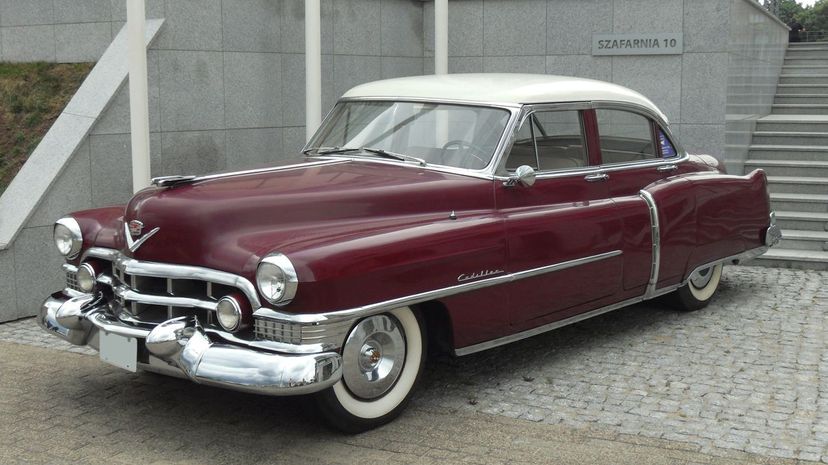
About This Quiz
The 1950s was a pretty unique time in the world of automaking. This was when a lot of manufacturers shook up their approach after World War II and started introducing some unique new design features. The '50s really ushered in the era of sports cars and luxury cars complete with some unheard-of features. Aside from all that chrome and plush carpeting, you could get models decked out with seat warmers, retractable rear-view windshields, tissue holders and even electric shavers in some models if you can believe that. And then there were the fins. So many massive, sharp, wide-sweeping fins.
The '50s were the era of the Corvette, the Thunderbird, the Bel Air and more. These cars have stood the test of time and even 60-plus years later they're some of the hottest-looking cars that ever hit the road. The difference now is that it's going to cost you a lot more to get your hands on one if you can find them since a lot of these cars will cost you six figures or more these days.
So if you're a fan of the cars of the decade, let's see what you know about your 1950s cars! Take the quiz and see!
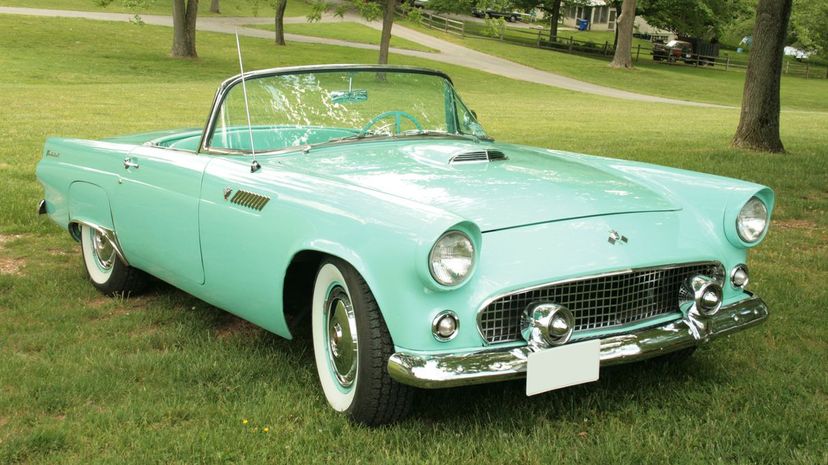
The Ford Thunderbird, or T-Bird, was introduced as a two-seater convertible in 1955. Ford opted not to compete with the Corvette, however, and instead of positioning it as a sports car it became the first personal luxury car on the market, starting a new trend.
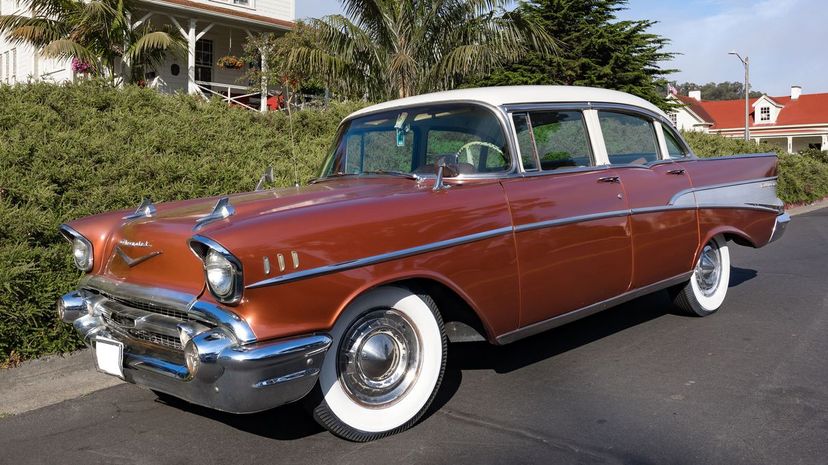
The Chevy Bel Air was a trendsetter with its chrome molding and even a chrome horn ring. This model's styling was basically a template for all other cars in the '50s, which is why when you think of the '50s odds are you think of a car that looks like a Bel Air.
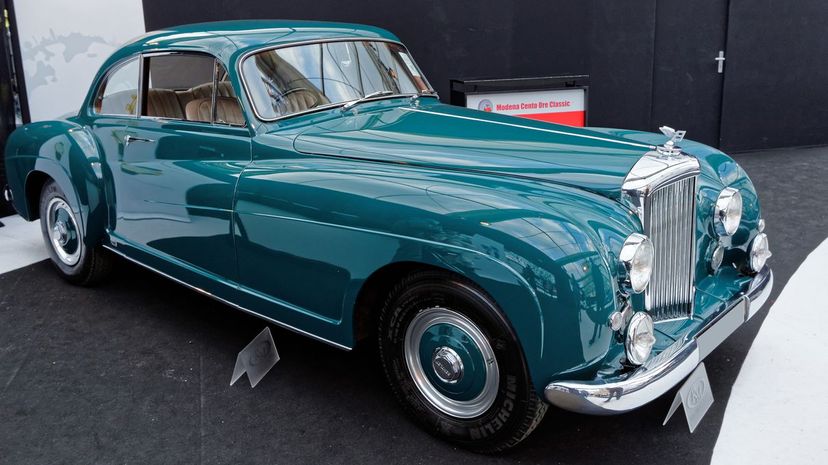
The Bentley R-Type Continental is an exceedingly rare and highly coveted vehicle these days. While some rare cars from the '50s might go for low six figures, an R-Type Continental sold for over $1 million in 2017.
Advertisement
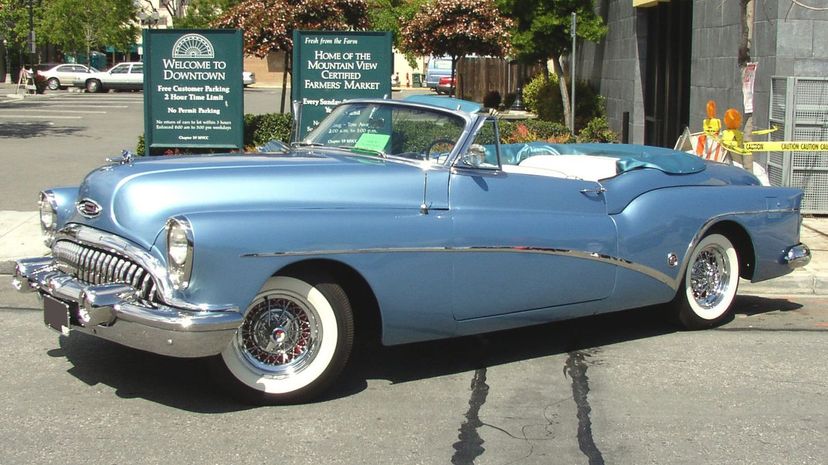
Released in 1953, the Buick Roadmaster Skylark was a top-of-the-line model that sold for over $5,000, which was a hefty price tag at the time compared to comparable models. Less than 1,700 were made in its first production run.
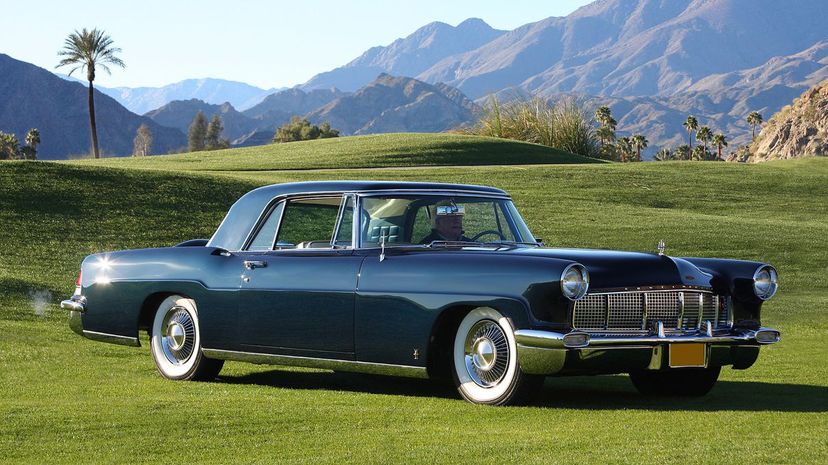
The Continental Mark II was a luxury model from Ford that was a massive financial mistake for Ford. Priced to be on par with a Rolls Royce, Ford still lost upward of $1000 on every one sold.
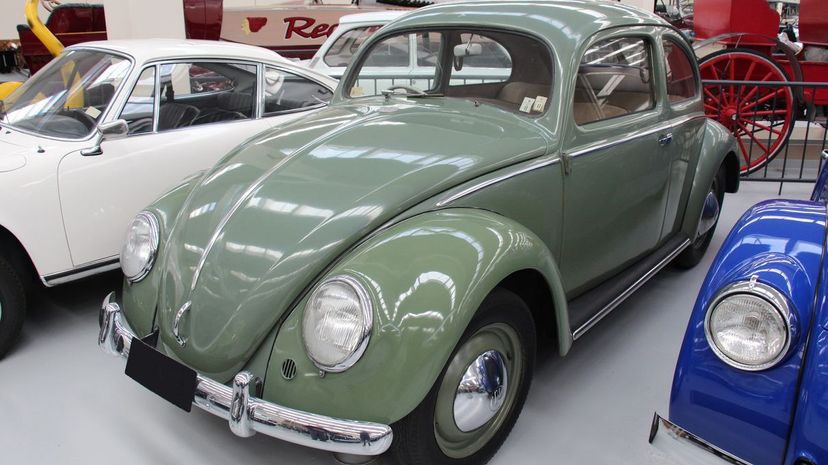
The original VW Type 1 (the Beetle) had been in production since the '30s but didn't make its way to America until after the war. As you can see when you compare it to other cars of the '50s, it was almost the exact opposite of everything else in production which is likely why it became so popular.
Advertisement
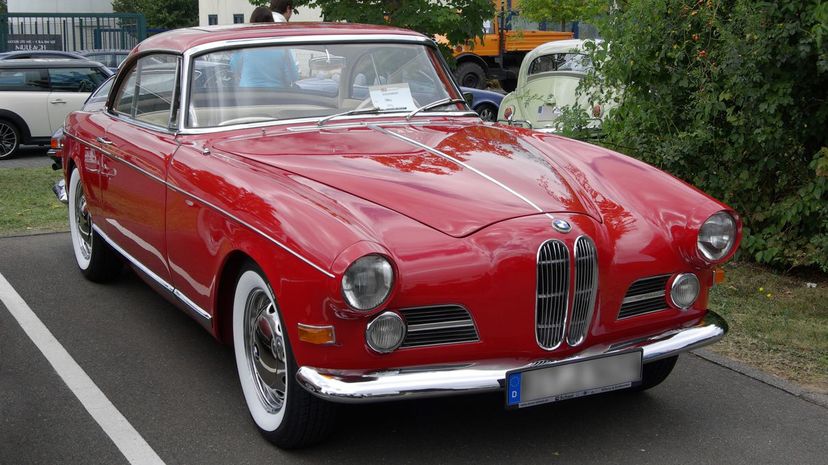
BMW introduced the 503 and the 507 at the same time in 1956. Only 413 503s were built between 1956 and 1959, making it something of a rare model for the discerning classic car collector.
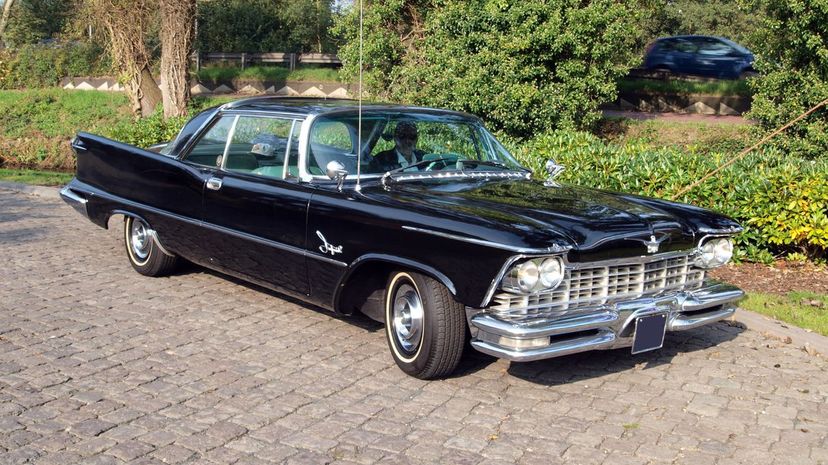
The Chrysler Imperial was never called a "Chrysler" for years. Imperial was its own brand, much like Cadillac was made by Ford, but never called a Ford. The Crown Imperial was also the first car to be made available with disc brakes.
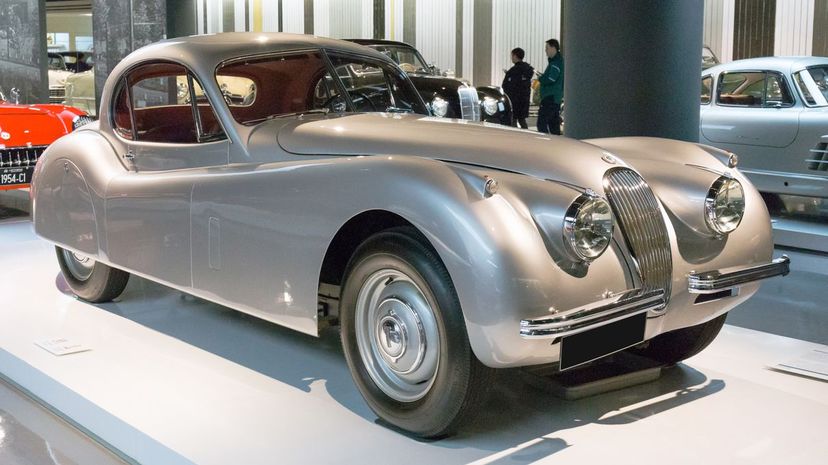
The Jaguar XK120 was introduced in 1948 and was Jaguar's first sports car since 1940. By 1950, it was a favorite of race car drivers and managed to take place in races at Pebble Beach and Palm Beach Shores, among others.
Advertisement
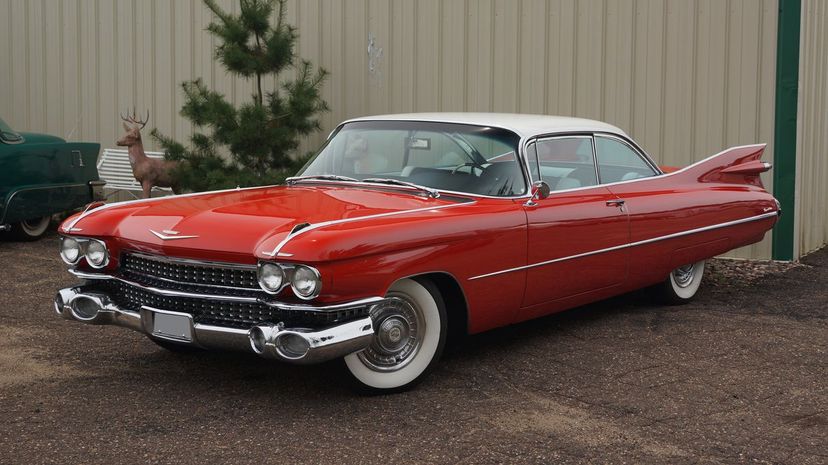
The Cadillac Coupe de Ville was a huge hit in its first generation back in 1959. Over 53,000 of them were sold, cementing it as one of the most popular Cadillac models ever made and it's still loved by collectors today.
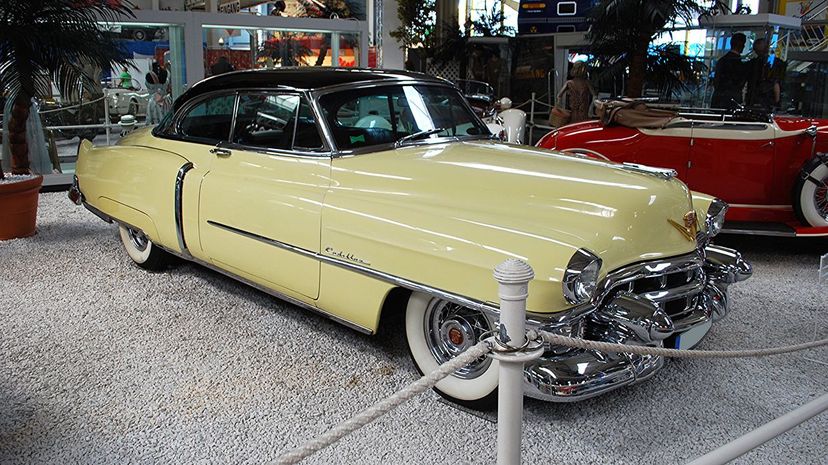
The Cadillac Eldorado was one of the most iconic cars of the '50s and really went all out with the chrome and luxury perks to help justify its $7,750 price tag, which was pretty steep at the time compared to most vehicles.
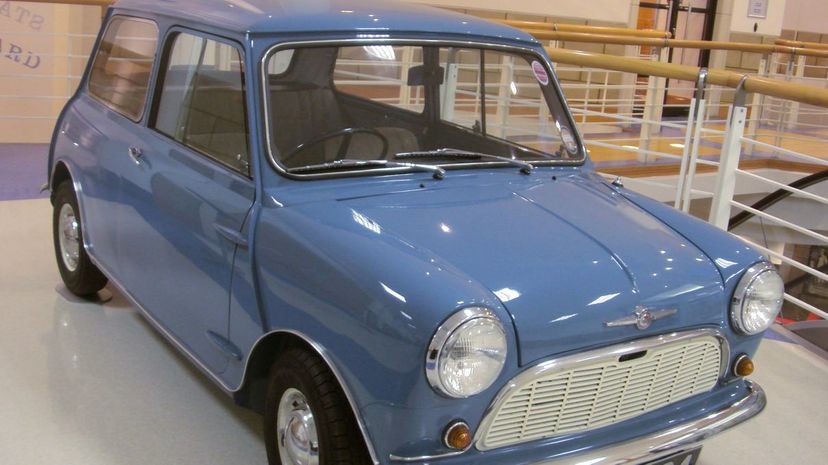
The Austin Mini showed up in 1959 and made a splash with its remarkably compact look. It quickly became an icon of British automaking and was a shining example of how you could design a car to handle an oil crisis.
Advertisement
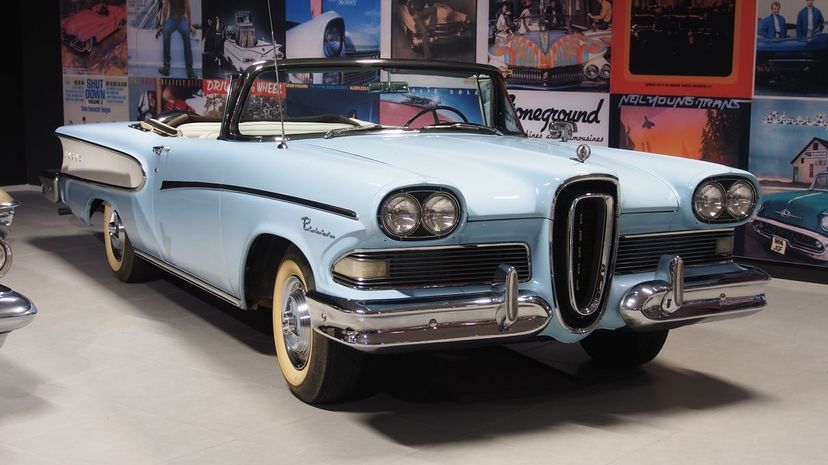
The Edsel still stands as one of the greatest failures in automotive history. These cars went over by a lead balloon and are considered some of the ugliest vehicles ever produced, and overpriced for the market, despite the fact the '58 Edsel Pacer convertible was actually a pretty decent car.
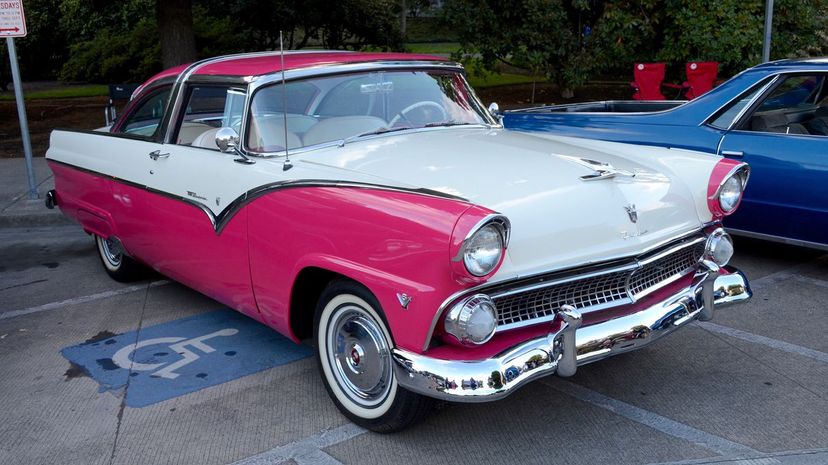
Ford produced the Fairlane starting in 1955. Aside from contributing to the name of the Andrew Dice Clay movie "The Adventures of Ford Fairlane" the car got its name from Henry Ford's estate which was called "Fair Lane."
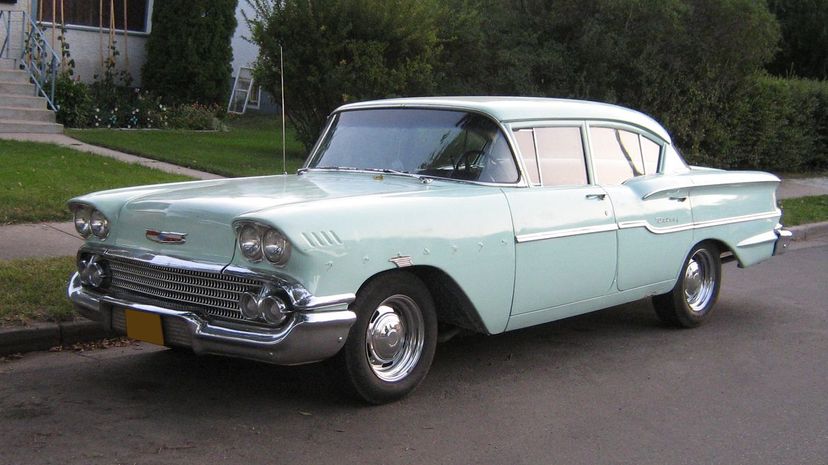
Chevrolet's Delray was produced with the awesomely named Blue Flame engine, a 115 horsepower straight-six or a 125 horsepower version. That's what made the Delray the hot rod that it was, and it was a favorite of racers.
Advertisement
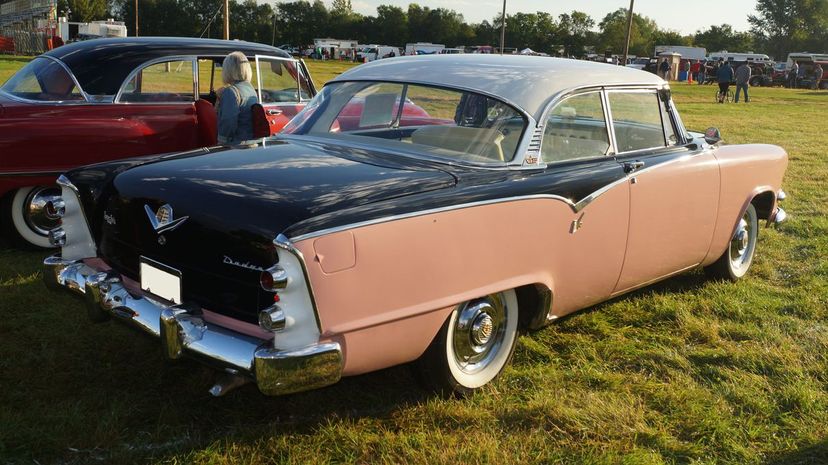
The Dodge Coronet Lancer was a hardtop coupe that really leaned heavily into the tailfin craze of the era. You could get this model decked out beyond belief with premium whitewalls, a Scope-Sight speedometer and even deep pile carpeting.
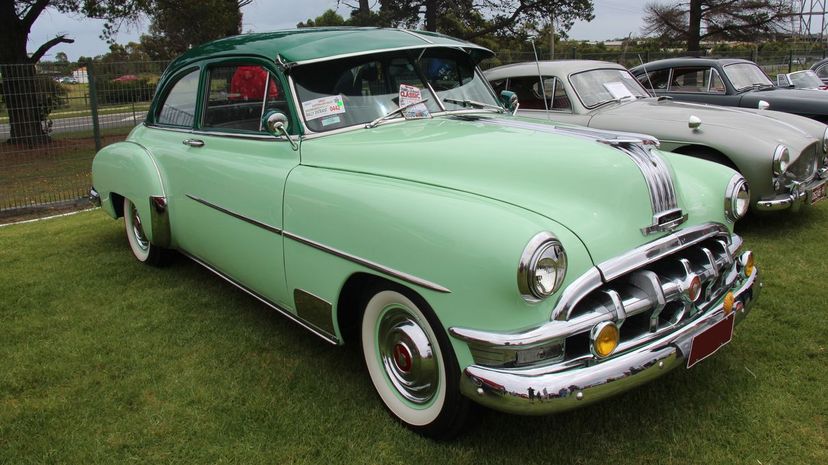
The Pontiac Chieftain came out as the Catalina Coupe in 1950 and had some stellar option packages available. Not only was the Remington Auto-Home shaver an option but also a tissue dispenser, under-seat heaters and even an illuminated hood ornament.
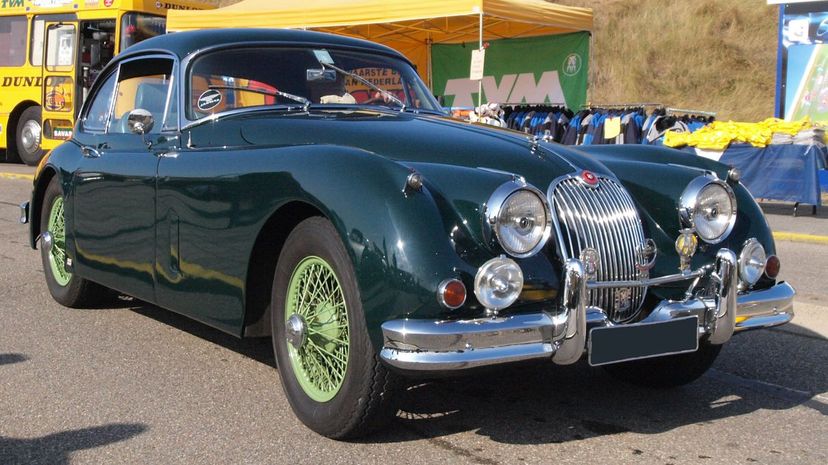
The Jaguar XK150 was initially available in two variants, the fixed head coupe and the drophead coupe. It was notable at the time for being available in a wide and eclectic range of colors including Cotswold Blue, Imperial Maroon, Carmen Red, British Racing Green and Cornish Grey.
Advertisement
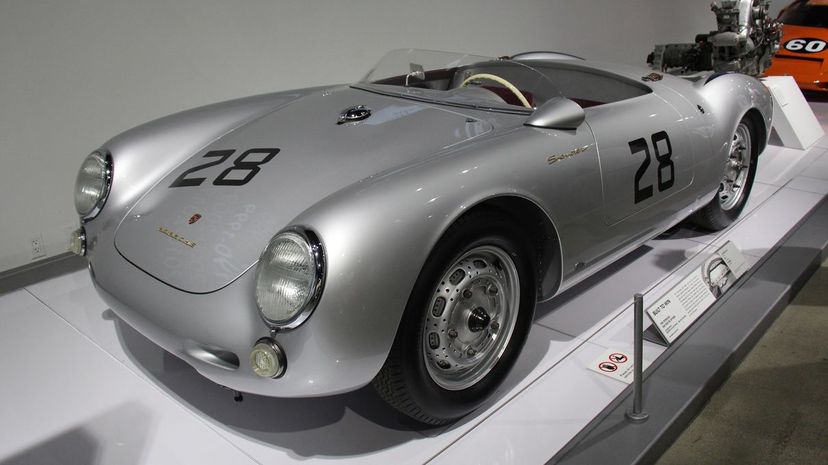
The Porsche 550 Spyder became infamous after the death of Hollywood star James Dean. The actor had one of the first 550s ever built and was driving it when he suffered his fatal crash. George Barris started something of an urban legend that the car was cursed.
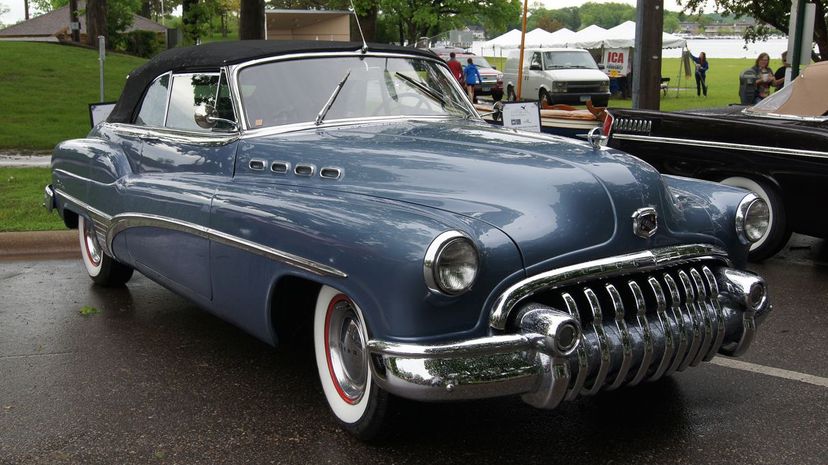
Buick's Roadmaster was restyled after the war to be more appealing to consumers but didn't necessarily hit its mark. The grille on the 1950 model was mocked for looking like teeth so much so that "Consumer Reports" joked about a toothbrush being sold separately.
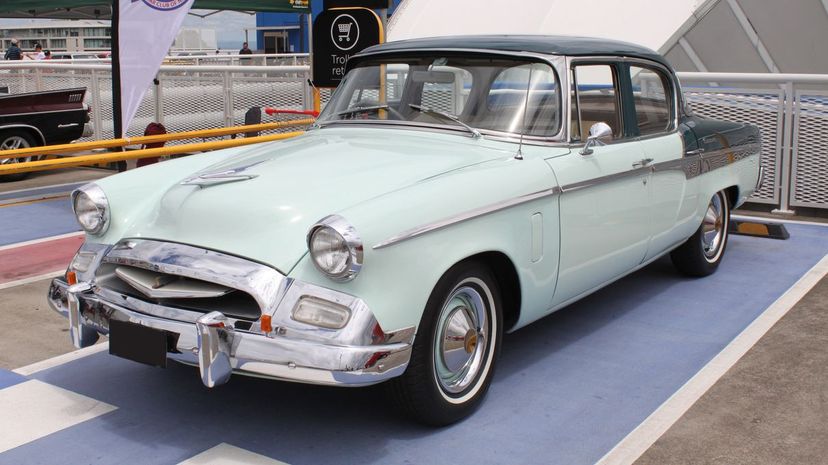
In 1953, two versions of the Studebaker Champion were made available. The two-door coupe was called the Starlight while the hardtop coupe was called the Starline. In 1954, the company added a station wagon called the Conestoga to the line.
Advertisement
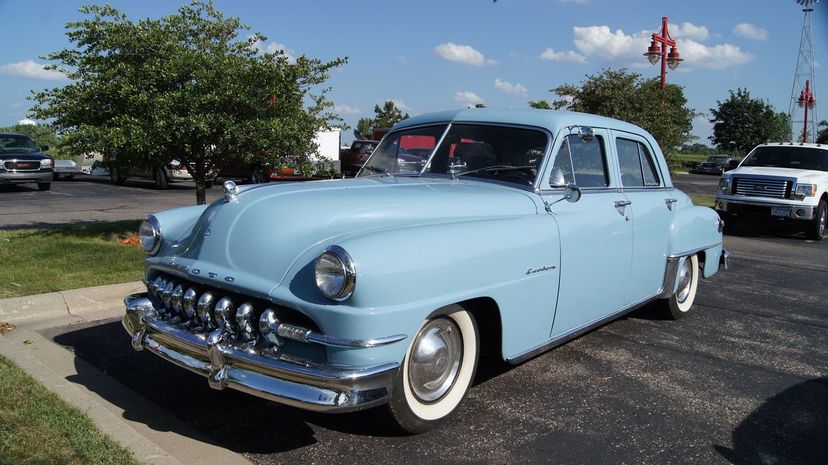
The DeSoto Custom was produced from 1939 until 1952. 1950 saw the first-ever station wagon and the first hardtop coupe as well. The coupe was rimmed to convertible standards and even had a trunk light. That's fancy stuff.
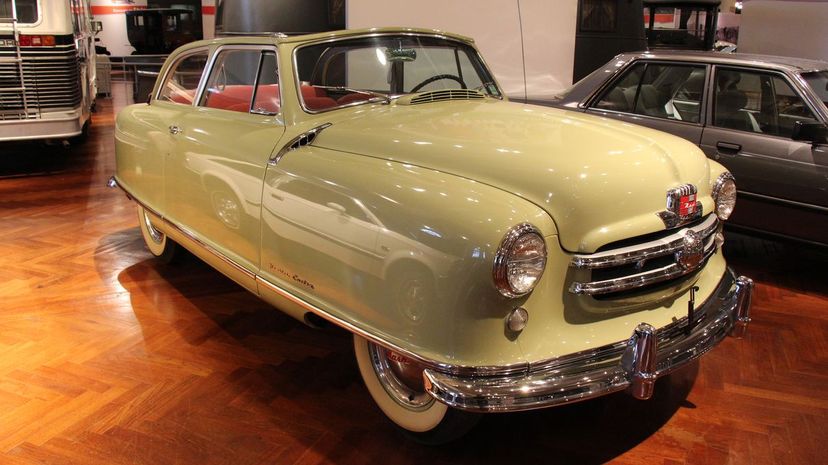
The Nash Rambler was a convertible that sold based on a few key components. First, it was exceptionally affordable at only $1,800. Second, it was marketed as being incredibly safe owing to the fact it used overhead steel rails for stablity. It was like driving in a cage.
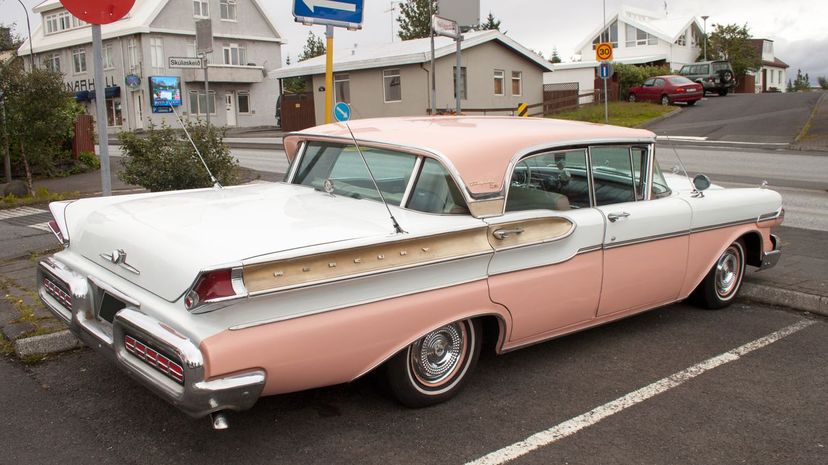
The Mercury Turnpike Cruiser was introduced in 1957 and featured what the maker called "breezeway ventilation" by way of a retractable rear windshield. It also had what they called a "Seat-O-Matic" that allowed you to have a programmable seat position.
Advertisement
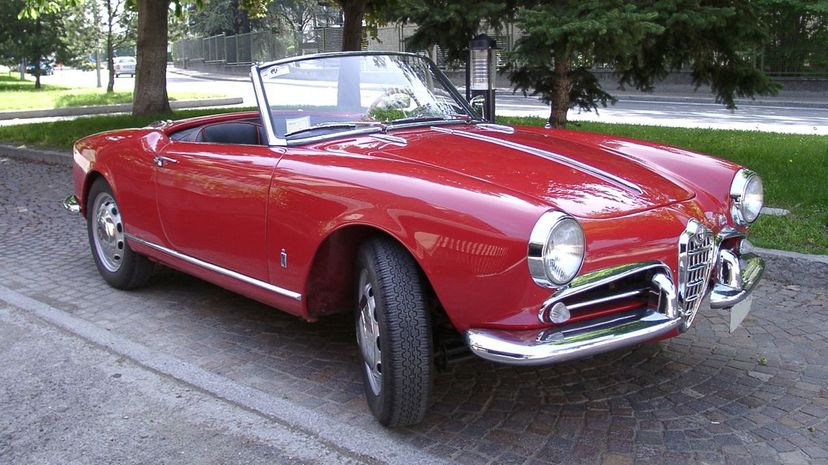
Alfa Romeo introduced its Giulietta in 1954 and, depending on the model, could hit speeds of up to 120 miles per hour. Thanks to its performance and handling, it was a favorite to compete in numerous races.
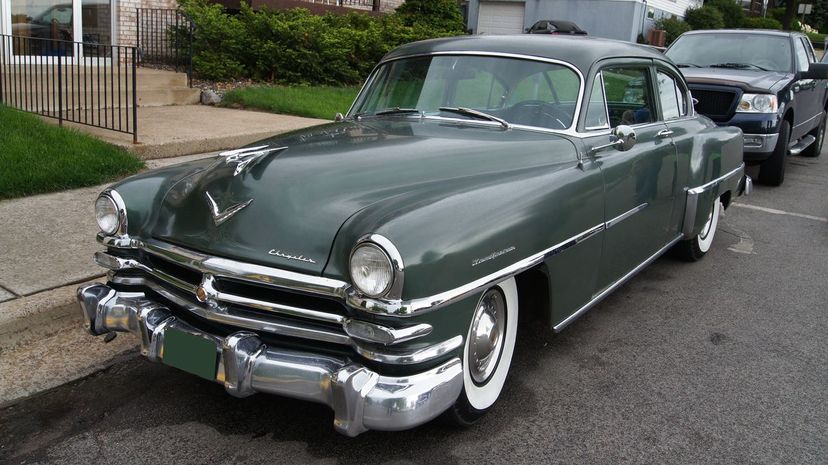
Chrysler's New Yorker was produced for over half a century starting in 1940. In 1951, Chrysler introduced the Firepower Hemi engine though by 1959 the company opted to swap it out in favor of the 350 hp Golden Lion V8.
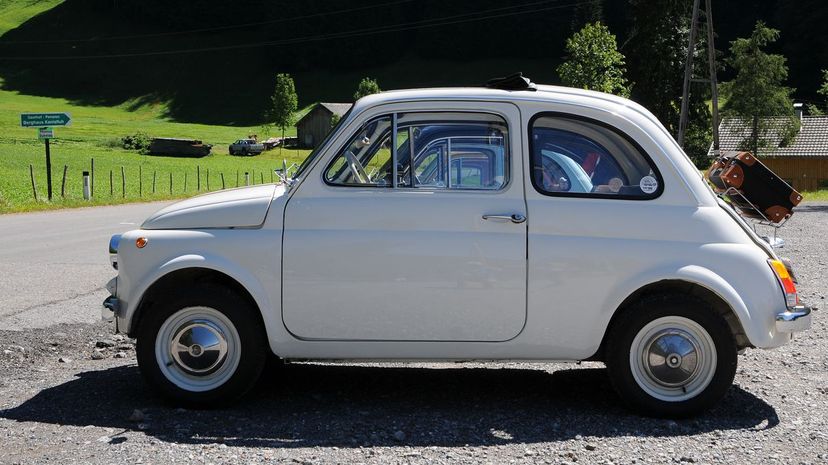
The Fiat 500 was small, reliable and affordable, and that made it extremely popular. Fiat even brought this model back in 2007 for the car's 50th anniversary to celebrate just how popular it was.
Advertisement
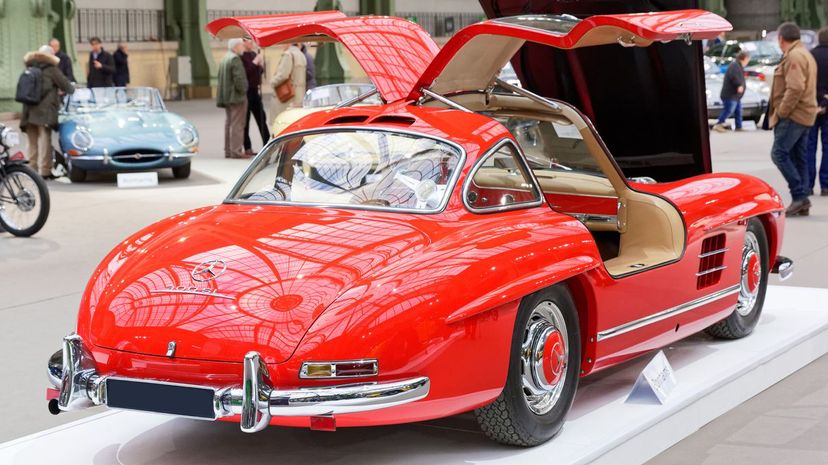
The Mercedes Benz 300 SL was a "sport light" version with a 3.0-liter engine meant to be a Grand Prix car for everyday drivers. To that end, it was actually the fastest production car available at the time.
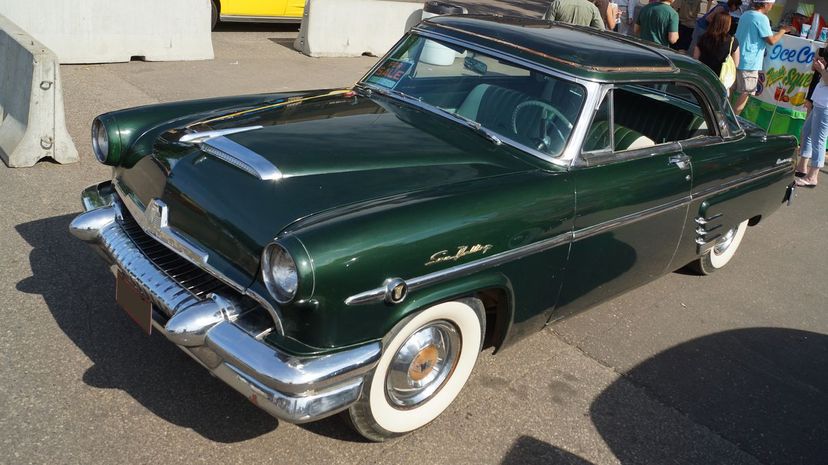
The Mercury Monterey Sun Valley was the evolution of Mercury's Eight Series and was not a super popular model. The Sun Valley didn't sell well despite the fact you could get a leather interior upgrade for only $10!
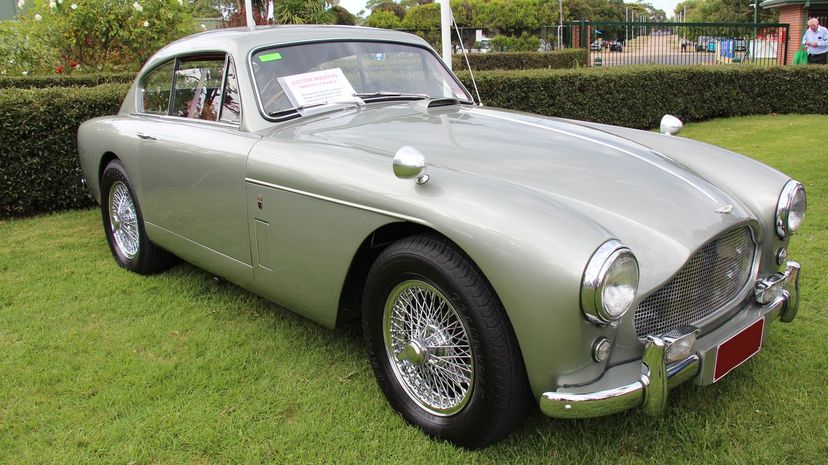
British super-spy James Bond has always been an Aston Martin fan and he drove the Mark III, complete with gadgets, in the book "Goldfinger." Because the movie wasn't made until the 1960s, producers updated it to a DB5 for the film.
Advertisement
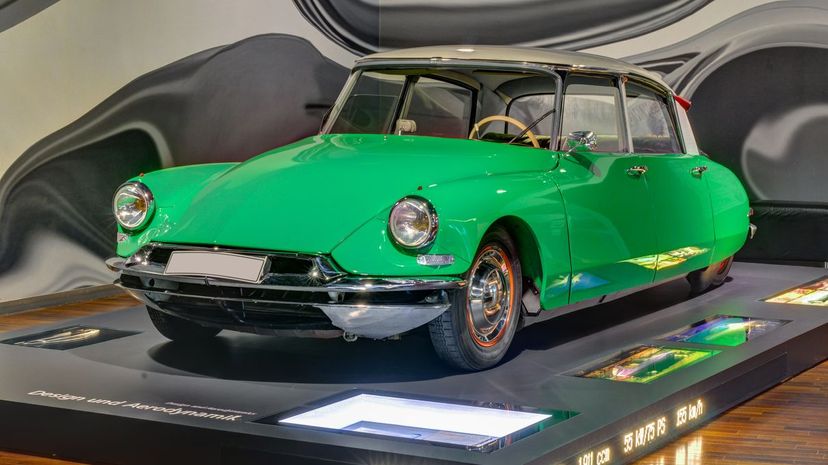
The Citroen DS was notable for looking sleek and futuristic when it was released back in 1955. That was quite on purpose, as it was designed in part by an Italian sculptor and engineer as well as a French aeronautical engineer.
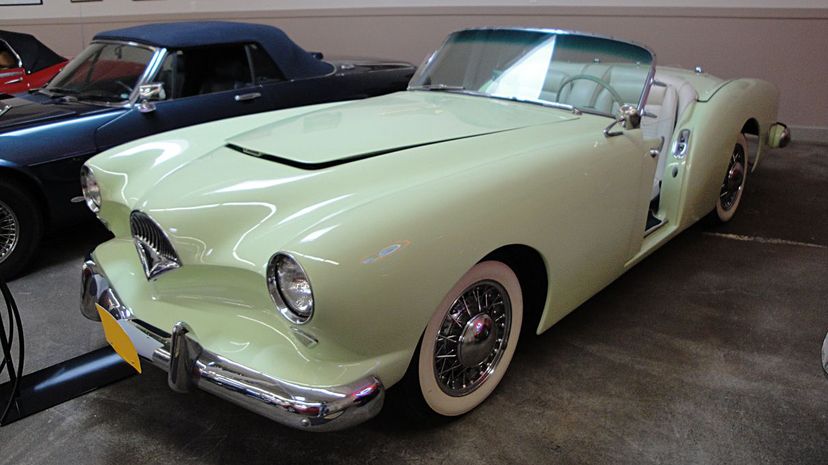
Only 435 Kaiser Darrins were produced after a number of issues plagued the company. Aside from the predictable financial issues you might expect a company to suffer, Kaiser also suffered massive losses from a freak snowstorm that destroyed 50 of the cars.
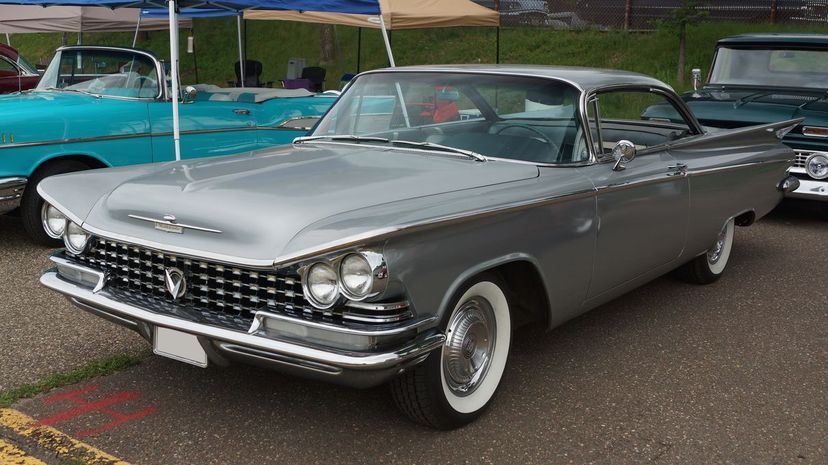
The LeSabre was Buick's replacement for its earlier model called the Special. Its affordable price made it popular but so did the fact you could get it with a four-barrel V8 that produced 300 horsepower.
Advertisement
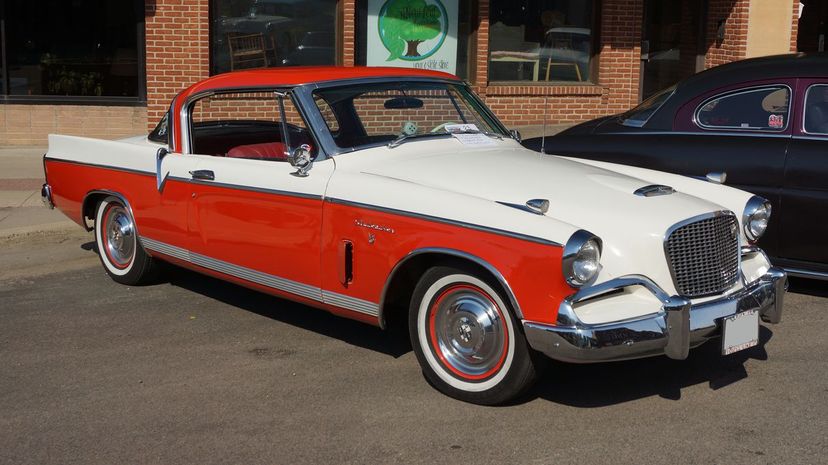
The 1956 Studebaker Golde Hhawk was an absolute beast with a 352 cu in, 375hp V8 engine that could cover a quarter-mile in only 7.8 seconds. That actually made it faster than the Corvette or the Thunderbird.
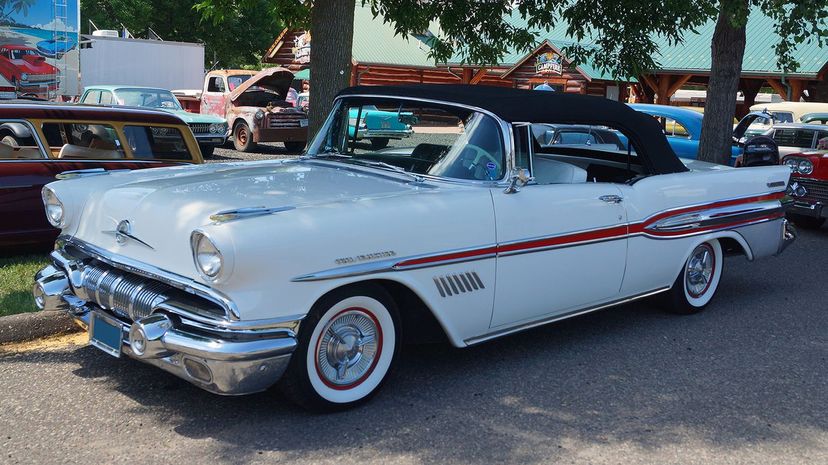
The Pontiac Bonneville started production in 1957 and came as either a two-door hardtop or a convertible. In its first year of production, the Bonneville served as a pace car for the Indy 500.
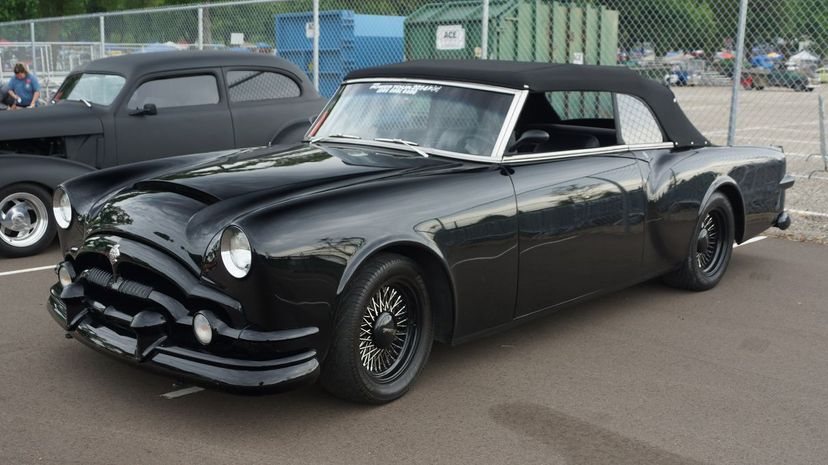
The Packard Caribbean was a luxury car made by the Packard Motor Car Company from 1953 to 1956. Only 750 1953 models were produced making them some of the most desirable and hard-to-find cars of the decade.
Advertisement
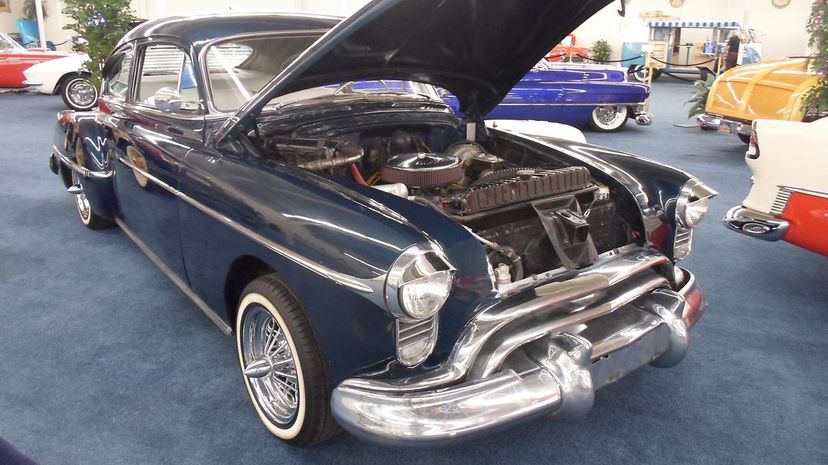
Parts of Oldmobile's 70 series, the Oldsmobile 76 was a monster with an overhead valve Rocket V8 engine. They called it the Futuramic 76 for only one year and then it was simply the 76 thereafter.
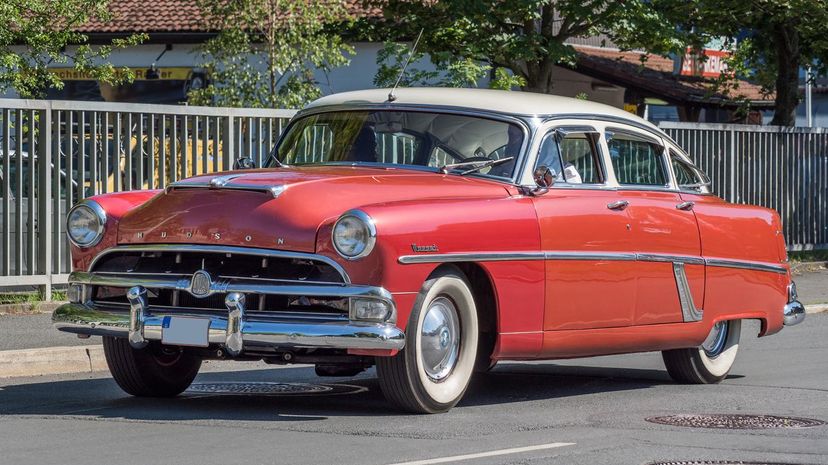
The Hudson Hornet was actually made by two different companies. For three years between 1951 and 1954 it was made by the Hudson Motor Car Company and then it was taken over by AMC, which kept the Hudson name for it.
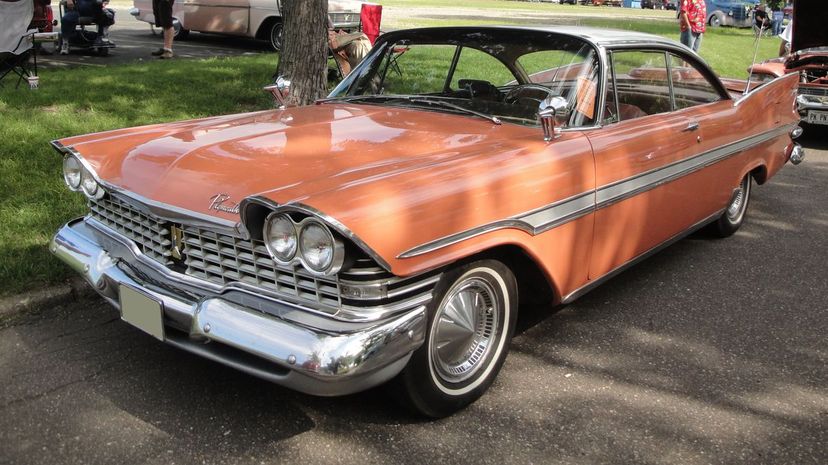
The Plymouth Fury was one of the manufacturer's most popular models and was actually used by a number of police forces thanks to the fact it was both reliable and had a powerhouse 240 hp engine that let it hit speeds of over 140 mph.
Advertisement
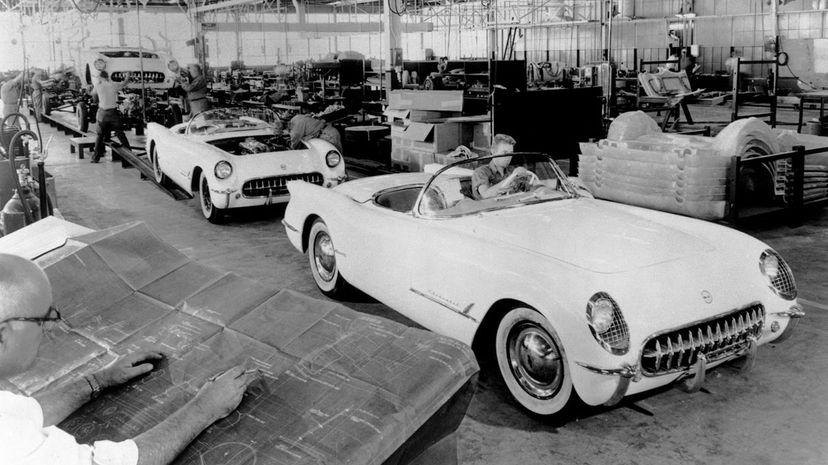
Few cars have achieved the fame and notoriety of Chevy's iconic Corvette. No one could have had any idea how popular it was going to be back in 1953, which is likely why Chevrolet only produced 300 of them.